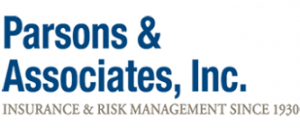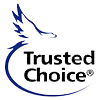Insights and Updates | Winter 2013
|
|
 folder/images/agency-parsonassociates.jpg)
|
|
|
[Winter 2013 • New York] |
||
 folder/images/139745308_snowmobile.jpg)
|
|||||||
Snowmobiling this winter?There are over 10,000 miles of snowmobile trails that are supported by New York’s Snowmobile Trail Development and Maintenance Fund. Registration. Unlike other jurisdictions, New York does not require paid trail permits. However, all operators are required to register their snowmobiles. The fee to register is $45 if you can provide proof that you belong to a New York state snowmobile club that is a member of the New York State Snowmobile Association. Otherwise, the fee is $100. For registration information, select “snowmobiles” under the “other information” section at the Department of Motor Vehicles website: www.dmv.ny.gov. Insurance. In addition, unless the snowmobile is operated solely on property owned or leased by the owner, liability insurance is required with limits no less than $10,000 for an accident involving one person, $20,000 for an accident involving two or more persons, and $5,000 for property damage. (Naturally, our agency can help you with this requirement.) Required proof of insurance and registration must be carried by every snowmobiler and presented to law enforcement officers upon request. Proof of insurance also must be shown to other parties involved in an accident with the snowmobiler. Children. Are you planning to bring the kids with you? There are age requirements that you need to be aware of. Children who are ages 14 through 17 may only operate a snowmobile without adult supervision (over 500 feet away) if they have completed an approved snowmobile safety training course. Children who are ages 10 through 13 must complete the training course and have adult supervision (within 500 feet). Children younger than 10, or ages 10 through 14 without a safety certificate, may only operate a snowmobile on lands owned or leased by their parent or guardian. Equipment. Anyone operating a snowmobile in New York must wear an approved safety helmet, except when located on property owned by the operator or passenger. Snowmobiles must be equipped with a working muffler, a head light, a tail light and reflector material (minimum of 16 square inches on each side of the cowling). Accidents. Any snowmobile accident resulting in personal injury or more than a $1,000 in property damage must be reported to the nearest law enforcement agency. Also, a complete written report must be filed within seven days. All of this information, as well as trail rules, may be accessed at the website of the New York State Office of Parks, Recreation and Historic Preservation; look under “Documents” for the New York State Snowmobilers Guide. |
|||||||
New holiday treasures might need coverageIf you were really good this year, you probably will have received everything you asked for this holiday season. After all those packages are unwrapped it will be up to you to protect your new treasures. Do this by updating your household inventory to include the new electronics, jewelry, sports equipment and other big-ticket items you received. And, before you send off your thank-you notes, take pictures of your new bounty; record any serial numbers; and store them both in a safe place—like a fire-proof lock box or in your safety-deposit box at your bank. Most importantly, give us a call to make sure you have the proper coverage on your homeowners or renters insurance policy. Remember some items, such as fur coats, fine art and jewelry, are subject to limitations under the basic policy and require more specific inland marine coverage to fully protect your valuables if they are lost, damaged or stolen. Need help with your household inventory? Want to know if you have enough coverage in your homeowners or renters insurance policy? Give us a call, we’ll be happy to help. |
||||
 folder/images/152973334_snow.jpg)
|
||||
Snow removal—business or personal?When the snow first starts, many of us smile. We remember those big fluffy flakes we’d catch on your tongue as kids. A dusting coats the neighborhood streets; snow lines once empty tree branches or clings to evergreen needles. It’s a wonderland … right up until the next morning that is, when we have to get up an hour early to clear the walk or driveway before work. Then, it’s something we have to deal with. Part of what we have to deal with, whether you know it or not, is insurance. Insurance for my snow blower? For my snow plow? Really? Like so many questions of insurance, the answer is, “It depends.” It depends on whether your snow blower or plow use is business-related or strictly personal. For personal use-only equipment, insurance is a nonissue. If you use your snow blower just to clear your own driveway, you do not need additional coverage. Even if you wanted to be friendly and clear the neighbor’s sidewalk, that’s no problem. If you happen to ding their mailbox or bump into their house, your homeowners policy will extend to cover that. The same goes with snow plows. If you’re being a good neighbor and plowing out the driveway across the street, your auto policy will cover the damage. A word of caution here: If you’ve purchased your snow equipment since we first wrote your policies, please check back with us. Your coverage is only as good as your policy limits, and we may want to re-evaluate those. Now, the situation changes dramatically as soon as money enters the picture. When you accept payment for your snow clearing services, you open yourself to the whole range of liabilities. Insurance is definitely an issue in this case. You’ll need a snow contractor’s liability policy. Even if you’re just doing neighborhood driveways for $30 each and you have your customers sign a liability waiver, insurance is still advisable. Not all waivers are enforceable to bar a person from seeking restitution for perceived damages. Also, whether or not you’re in the right, court costs and lawyer’s fees will accrue. Play it safe. If snow removal turns into a business, make insurance one of the first things you consider, not an afterthought. If you need to talk insurance for snow equipment or anything else, give us a call. We’re always glad to walk you through any coverage issues and to make sure your policies offer all the protection you need. |
||||
 folder/images/78029237_fire.jpg)
|
||||
Keep warm, but don’t burn this winterThere are certain objects in your house that you might not pay attention to until there’s a problem. Just think, when was the last time you thought about your chimney or furnace? However, now that winter is upon us, these two parts of your home probably are working overtime.
Even when taking the necessary precautions, accidents do happen. That’s why your homeowners insurance policy is so important. While there isn’t “chimney or furnace coverage,” a standard homeowners insurance policy covers specific types of damage for the entire house, which includes the chimney and furnace. Typically, a broad-form policy lists 16 standard types of covered damage (including fire, lightning, theft, explosion and weight of ice and snow). And, a special-form policy will cover damages as long as they are not listed in the exclusions section of the policy. As long as the damage caused by the chimney or furnace is under the covered perils of your insurance policy, your insurance company should pay the claim. Additional tips Confused about your homeowners policy? Do you want to make sure you have enough coverage to protect you through the winter months and beyond? Give us a call. We’ll be happy to review your current policy and |
||||
 folder/images/91521127_sleep.jpg)
|
||||
Drowsy driving is as dangerous as drunk drivingIf you are tired and have a long drive ahead of you, you might want to think twice before getting behind the wheel. Falling asleep at the wheel is clearly dangerous, but being sleepy affects your ability to drive safely even if you don’t fall asleep. Drowsiness can make drivers less attentive, slow their reaction time and affect their ability to make safe decisions. Although it may be difficult to attribute a fatal vehicle crash to drowsy driving, it is implicated in 100,000 car crashes per year, which leave 71,000 people injured and 1,500 dead according to the National Highway Traffic Safety Administration. Some experts feel that the number of fatal crashes each year due to drowsy driving is closer to 5,000 or 6,000 people. New research on the need for adequate sleep in maintaining good health, coupled with the negative impacts of sleep deprivation are coming to the attention of policymakers, and investigations are ongoing into what role drowsy driving is playing in traffic accidents. In 2003, New Jersey legislators signed the nation’s first law that specifically named driving while drowsy as a criminal offense, and many other states may soon follow suit. Some of the warning signs of drowsy driving include:
Some safe solutions to prevent drowsy driving are:
Don’t try to drive all through the night. |
||||
News from our agency |
|||||
Find the best deductible for youIt’s always difficult to figure out what you want your premium to be vs. what you want your deductible to be. Some folks want to take all the precautions they can and opt for higher premiums; that way, if they suffer a loss, their low deductible will take the pressure off. Others are willing to sacrifice a better deductible for lower payments each month. In addition to the money question, you also have to recognize that coverage options can change along with your deductible. Certainly you shouldn’t pay for something you don’t need, but if your sole focus is premium vs. deductible, you could end up overlooking crucial coverage and get burned on a loss. We don’t want that to happen to you. Deductibles are always a judgment call, but we can help you make the best judgment for your situation. Give us a call if you need help. |
 folder/images/178718506_news.jpg) |
||||
|
The information in this newsletter is meant as a guideline only. There is If you prefer not to receive this e-mail newsletter from Parson and Assoicates, click here. |
||||

 folder/images/logo-insights.jpg)






Leave a Reply
Want to join the discussion?Feel free to contribute!